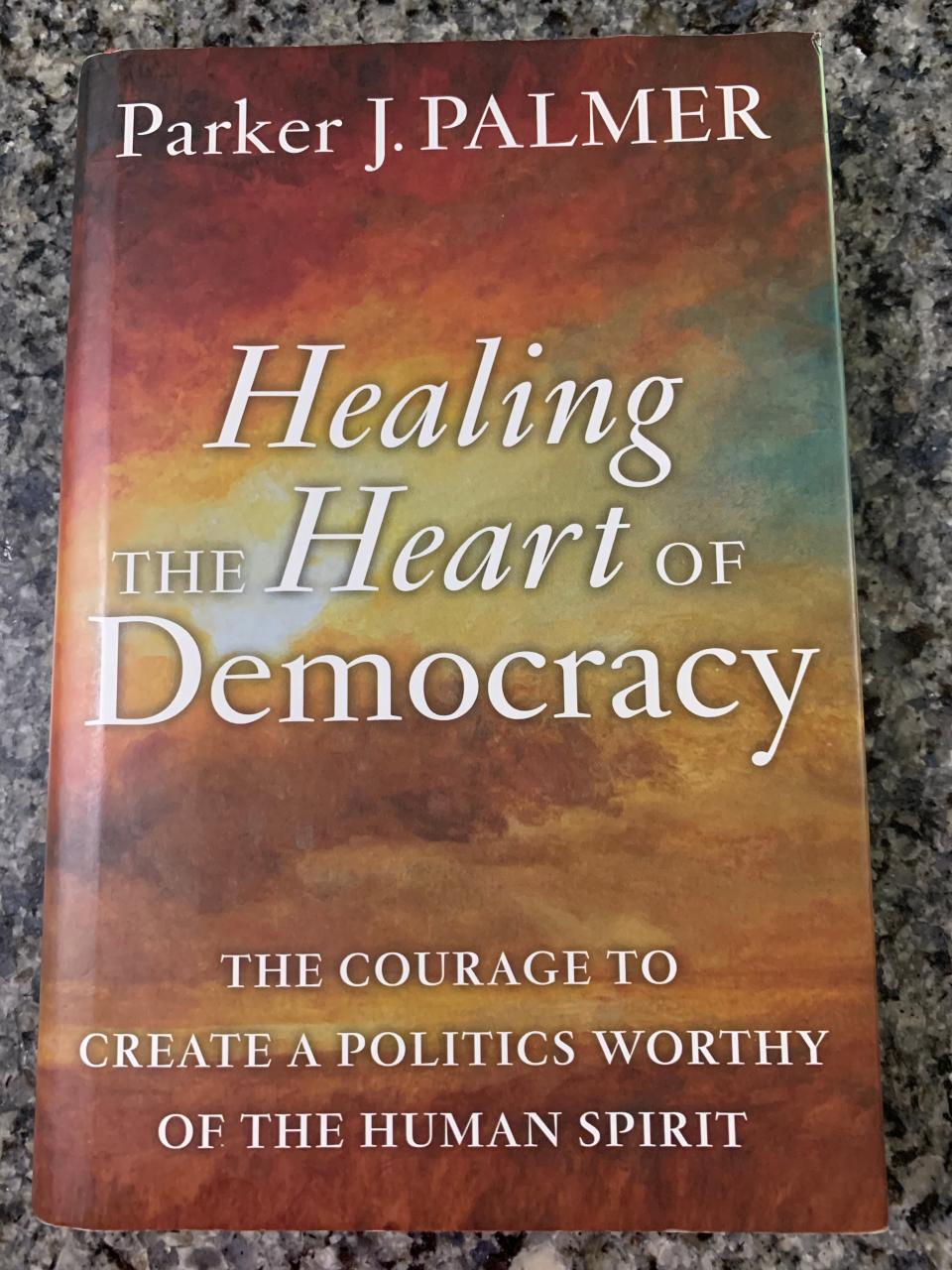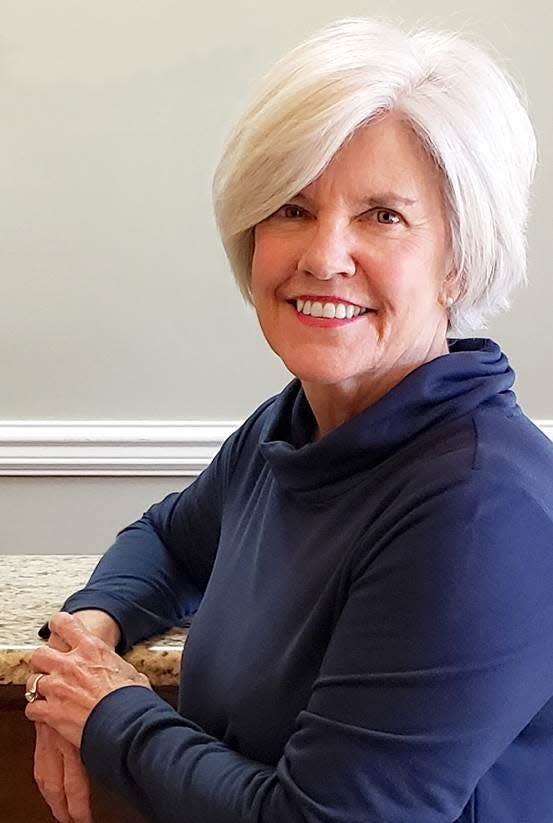Be inspired by civic opportunities for healing in our community | Candace McKibben
- Oops!Something went wrong.Please try again later.
Sitting in the courtroom with about 150 people awaiting instruction this past Monday morning, I was taken by the diversity of the group and the importance of what had drawn us together. There was a team of workers ensuring that we found our way to check-in and were aware of the location of the bathrooms, vending machines, and the free hot beverage stand.
The qualifying judge, Nina Ashenafi Richardson, made certain that we understood how grateful she was for our answering the jury summons, indicating that many do not. She said that the juror badges we had been instructed to wear would help staff in the Leon County Courthouse to support us for being present.
She gave us a passionate history lesson about the court system, the concepts of presumed innocence and the rule of law, and the important role a jury plays in our system of justice. She thanked us again and talked about the opportunity and responsibility that was ours in complying with our civic duty.

Words of hope
After the shocking assassination attempt on former President Donald Trump at the Butler Farms Show Grounds in Butler, Pennsylvania, on July 13, 2024, many of us are looking internally and wondering about our civic duty to our nation in this time of crisis. While “thoughts and prayers” have been devalued as not enough, we know we can pray or send positive energy toward the healing of our nation.
If we are self-aware, we know that hope and positivity is the best position for moving through a personal crisis, and researchers and persons of great wisdom through the ages have taught about the critical nature of hope and positivity to our corporate wellbeing.
The temptation is to despair at the disbelief and sadness of where we stand as the divided states of America. And while we grieve and acknowledge the many feelings we have about our current situation, we do, as President Lincoln implored in another troubled time in our nation, want to listen to our better angels.
With little time to process what occurred at the Trump rally the evening before, ministers around the country stood in pulpits on Sunday to address their congregations who were eager to hear a word of hope.
From “The way of love, not the way of violence, is the way we bind up our nation’s wounds. We decry political violence in any form, and our call as followers of Jesus of Nazareth is always to love,” (Bishop of the Episcopal Church, Michael Curry), to “We are in a war, and it is a spiritual one that if we do not win will turn into a very physical one. White evangelical Christians might have to resort to violence,” (Founder, Jackson Lahmeyer, Pastors for Trump) the messages were wide-ranging. And that, of course, is part of the problem.
Finding the 'moral center'
Political leaders were less wide-ranging in their comments early on. They spoke with the raw truth and clarity that such life altering moments bring.
President Biden implored, “While we disagree, we are not enemies, we are neighbors. Politics must never be a literal battlefield and, God forbid, a killing field.” Republican House Speaker, Mike Johnson, said "We've got to turn the rhetoric down. We've got to turn the temperature down in this country. We need leaders of all parties, on both sides, to call that out and make sure that happens, so we can go forward and maintain our free society that we are all blessed to have."
On the Sunday morning after the shooting, I read in The New York Times, an opinion piece, “After Such Violence, the Center Must Hold,” by David French.
I was impressed by his interpretation of a line of poetry from William Butler Yeats written in 1919. While the world was still reeling from World War I and an influenza pandemic, and his own country, Ireland, was engaged in a war of independence, Yeats wrote the poem “The Second Coming.” The line, “Things fall apart; the center cannot hold,” referring to the moral center of civilization, does seem to capture the critical point at which we stand as a nation. French writes: “Now is the time for America’s moral center to rise up and declare — with one voice, neither red nor blue — “Enough.”
I am reminded of another poet in our own time, Amanda Gorman, who writes in her poem, “New Days Lyric”:
May this be the day
We come together.
Mourning, we come to mend,
Withered, we come to weather,
Torn, we come to tend,
Battered, we come to better.
Tethered by this year of yearning,
We are learning
That though we weren’t ready for this,
We have been readied by it.
We steadily vow that no matter
How we are weighed down,
We must always pave a way forward.
Civic duty calls
As I think of our civic duty to show up when summoned to serve as a potential juror, as I think of how we can find our moral center as a nation, I am reminded of other civic duties and responsibilities we have as citizens. As participants in the public life of a community, it is important to be informed, committed, and to behave in a constructive manner, with a focus on the common good.
We are obligated to obey the law, show up for jury duty when summoned, attend school to gain an education, pay taxes, uphold the constitution, and if male and between the ages of 18 and 25, to sign up for the draft.
Beyond these required civic duties, it is hoped that as responsible citizens we will exercise our voluntary right to vote, to speak out respectfully about civic matters that concern us, to engage in community efforts to improve the welfare of the citizenry, and to demonstrate respect for those with whom we may differ. The hope is to have the morality to respect the beliefs and lives of all others, no matter their perspective.
I do pray and send positive energy into the possibility of our healing as a nation. But I also imagine focusing on these civic duties and responsibilities gives us all concrete actions to take to become more effective citizens in these troubled times.
Quaker Parker Palmer, in his helpful book “Healing the Heart of Democracy,” written in 2011 but still relevant today, states “Violence is what we do when we don’t know what to do with our suffering.” I pray we can find constructive ways to deal with our suffering as we seek to heal our broken nation.

The Rev. Candace McKibben is an ordained minister and pastor of Tallahassee Fellowship.
This article originally appeared on Tallahassee Democrat: Be inspired by civic opportunities for healing in community, nation

